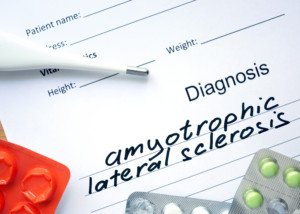Do you fear ALS every time a muscle twitches? Is there a way to STOP suffering from this panic?
Yes, there is a way to end the panic and terror that you feel every time another muscle twitches.
Let’s backtrack what first led you to this unexpected phase of your life—this groove that you’ve somehow wedged yourself into and can’t wriggle your way out of.
• You felt a muscle twitch—perhaps for the thousandth time in your life—something you would have never given a split-second thought to—had the Internet never been invented.
• But thanks to an amazing invention in 1985 (the World Wide Web), you now can type a question into the search engine and within seconds, have answers.
• And that’s your first mistake: confusing search results with answers.
• Scattered in the search results are links to ALS information. Boy, that grabs your attention and you make the first of hundreds of panicky clicks.
• You’ve now been sucked into a torturous journey of panic and fear, as you keep seeing “twitching muscles” on the symptom lists for ALS.
Need I say more how this psychological process works? But it’s time to end it, once and for all, this wretched cycle of intense anxiety.
Muscle twitching, in and of itself, is not a disease.
Muscle twitching is a symptom—but not necessarily of a disease.
“Muscles may randomly twitch for many reasons,” notes Carolyn Dean, MD, ND, medical advisory board member of the Nutritional Magnesium Association at nutritionalmagnesium.org.
Dr. Dean adds that you may not even be aware of much of the twitching that goes on. But heightened awareness, thanks to reading about diseases like ALS, drive up anxiety.
“They can twitch due to anxiety or stress,” says Dr. Dean, “a sleepless night [perhaps from excessive worry about ALS], too much coffee or after exercise.”
The top causes of muscle twitching have nothing to do with disease: anxiety, stress, too much caffeine, eyestrain, exercise, sleep deprivation, dehydration and electrolyte deficiency, particularly that of the mineral magnesium.
“Magnesium deficiency leads to blood vessels and muscles that are less relaxed and more susceptible to spasm and tension,” says Dr. Dean.
Are you getting enough magnesium? Perhaps, but is it being depleted through exercise?
“When people sweat, they lose potassium and sodium. What most people do not know is that magnesium is also lost through the sweat glands.”
Are you into heavy exercise or some other physical exertion? “Replacing potassium alone doesn’t help people who are also magnesium deficient,” says Dr. Dean.
“Without enough magnesium the body is unable to metabolize potassium and deliver it to the cells.
“Magnesium assists over 700 enzyme actions including the production and transport of energy, temperature regulation and the synthesis of protein, while it also relaxes muscles, preventing cramping, especially important for post-workout recovery.”
If you don’t exercise much (but you should!) yet still worry that your twitching muscles mean a motor neuron disease like ALS, your power tools are to:
1) Keep hydrated, 2) Reduce the anxiety in your life (choose your battles wisely!) and 3) Supplement with magnesium.
If you have any worsening symptoms or new unexplained symptoms, see your physician.




























